
Kotagede: The Heart of Javanese Heritage
Kotagede, located in Yogyakarta, Indonesia, is a treasure trove of history and culture. Once the capital of the ancient Mataram Kingdom, this neighbourhood is now a thriving hub that beautifully blends the old with the new. Visitors to Kotagede can expect to witness traditional Javanese architecture, charming alleyways, and a vibrant local market that offers an authentic glimpse into the everyday lives of its residents. Begin your journey with a visit to the Great Mosque of Kotagede, one of the oldest mosques in Yogyakarta, where intricate wood carvings and serene courtyards await. Stroll through the nearby streets lined with traditional Javanese houses, known as 'Joglo,' which are adorned with exquisite carvings and lush gardens. Each house tells a story of the past, offering a unique glimpse into the rich cultural heritage of the area. For those interested in craftsmanship, Kotagede is renowned for its silver workshops. Witness skilled artisans at work, crafting intricate jewelry and ornaments that make for perfect souvenirs. Don't forget to visit the local market, Pasar Legi, where you can immerse yourself in the lively atmosphere and sample traditional Javanese snacks. The market is a sensory delight, with the aroma of fresh produce and spices filling the air. A visit to Kotagede is not complete without exploring the royal cemetery, where the Mataram kings and their families are laid to rest. The cemetery is a serene and sacred place, offering a moment of reflection amidst the hustle and bustle of the neighbourhood. Whether you are a history buff, a culture enthusiast, or simply looking for a unique travel experience, Kotagede promises to captivate your senses and leave you with unforgettable memories.
Local tips in Kotagede
- Visit early in the morning to avoid crowds and experience the neighbourhood at its most peaceful.
- Respect local customs when visiting the royal cemetery; wear modest clothing and follow the guidelines.
- Try traditional Javanese snacks at Pasar Legi for an authentic culinary experience.
- Bring a camera to capture the stunning details of Javanese architecture and craftsmanship.
- Check the schedule for any local cultural events or festivals happening during your visit for a richer experience.
Kotagede: The Heart of Javanese Heritage
Kotagede, located in Yogyakarta, Indonesia, is a treasure trove of history and culture. Once the capital of the ancient Mataram Kingdom, this neighbourhood is now a thriving hub that beautifully blends the old with the new. Visitors to Kotagede can expect to witness traditional Javanese architecture, charming alleyways, and a vibrant local market that offers an authentic glimpse into the everyday lives of its residents. Begin your journey with a visit to the Great Mosque of Kotagede, one of the oldest mosques in Yogyakarta, where intricate wood carvings and serene courtyards await. Stroll through the nearby streets lined with traditional Javanese houses, known as 'Joglo,' which are adorned with exquisite carvings and lush gardens. Each house tells a story of the past, offering a unique glimpse into the rich cultural heritage of the area. For those interested in craftsmanship, Kotagede is renowned for its silver workshops. Witness skilled artisans at work, crafting intricate jewelry and ornaments that make for perfect souvenirs. Don't forget to visit the local market, Pasar Legi, where you can immerse yourself in the lively atmosphere and sample traditional Javanese snacks. The market is a sensory delight, with the aroma of fresh produce and spices filling the air. A visit to Kotagede is not complete without exploring the royal cemetery, where the Mataram kings and their families are laid to rest. The cemetery is a serene and sacred place, offering a moment of reflection amidst the hustle and bustle of the neighbourhood. Whether you are a history buff, a culture enthusiast, or simply looking for a unique travel experience, Kotagede promises to captivate your senses and leave you with unforgettable memories.
Iconic landmarks you can’t miss
Makam Panembahan Senopati
Discover the historical Makam Panembahan Senopati, a serene royal cemetery in Yogyakarta offering insights into the rich cultural heritage of the Sultanate.
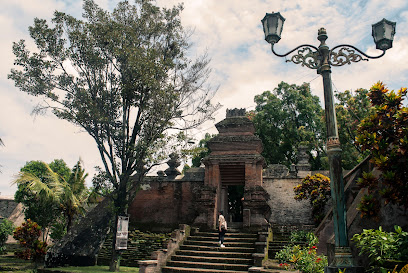
Omah UGM Kotagede Yogyakarta
Explore the rich cultural heritage of Yogyakarta at Omah UGM, a unique museum showcasing Javanese history and artistry in a stunning setting.
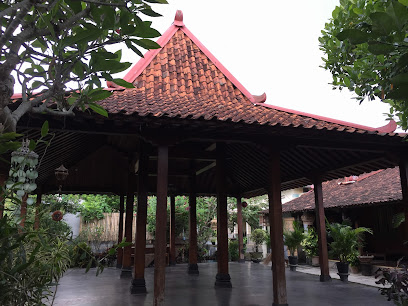
Between Two Gates
Explore the architectural beauty and historical significance of Between Two Gates in Yogyakarta, a true gem for culture and history enthusiasts.
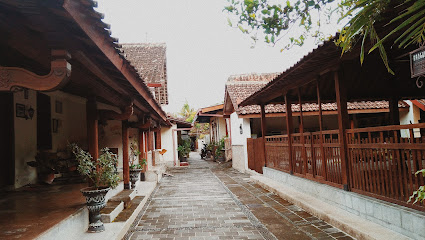
Situs Benteng Cepuri
Explore the rich history and architectural beauty of Situs Benteng Cepuri, a historic landmark in Yogyakarta, Indonesia, perfect for history enthusiasts and travelers alike.
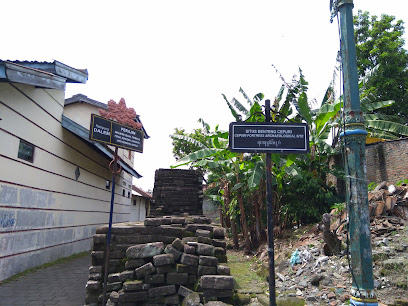
Lawang Pethuk Kotagede
Experience the rich heritage of Yogyakarta at Lawang Pethuk Kotagede, where traditional silversmithing meets unique handcrafted gifts.
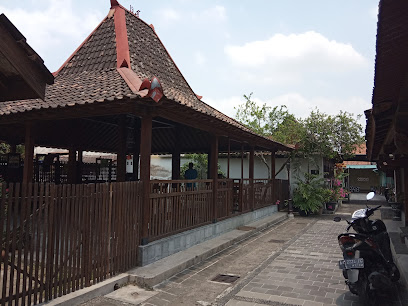
Gang soka Kotagede
Discover the historical charm and artisanal beauty of Gang Soka Kotagede, a hidden treasure in Yogyakarta, Indonesia for culture enthusiasts and travelers.
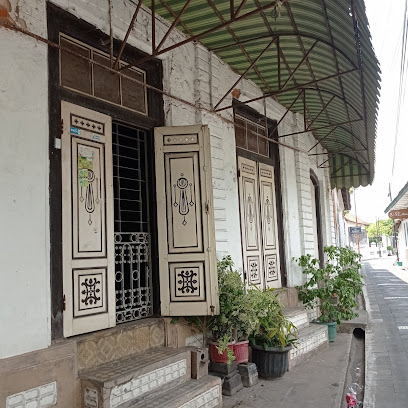
Kotagede Historic District
Discover the enchanting Kotagede Historic District, where Javanese culture, stunning architecture, and vibrant local traditions await your exploration.
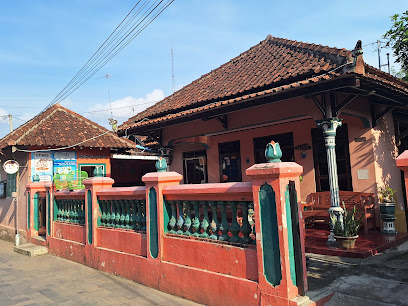
Gardu ANIEM Pasar Kotagede
Discover the vibrant market life and rich cultural heritage at Gardu ANIEM Pasar Kotagede, a historical landmark in Yogyakarta, Indonesia.
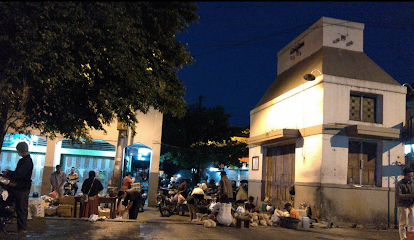
Bangunan Cagar Budaya Sumur Retno Dumilah
Discover the serene beauty and rich history of Sumur Retno Dumilah, a cultural gem in Yogyakarta's historic Kotagede district.
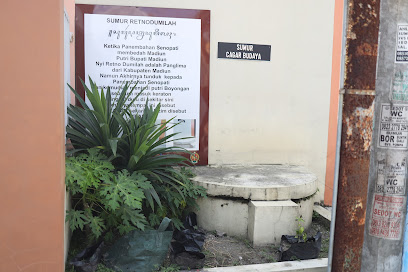
Panggung Kanthil
Discover the cultural heartbeat of Yogyakarta at Panggung Kanthil, where traditional performances and stunning architecture come together.
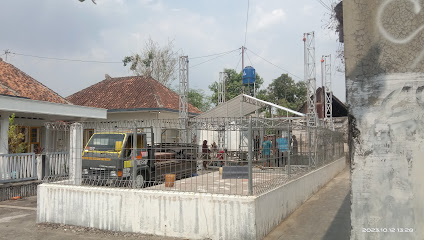
Unmissable attractions to see
Gembira Loka Zoo
Discover Gembira Loka Zoo: A captivating blend of wildlife, conservation, and education in the heart of Yogyakarta.

Makam Panembahan Senopati
Discover the rich spiritual heritage of Yogyakarta at Makam Panembahan Senopati, a historical site that embodies Javanese culture and tradition.
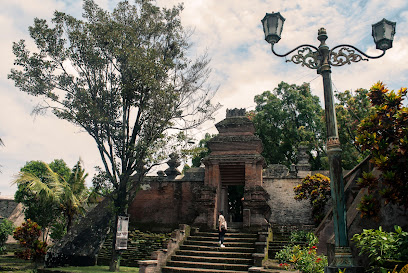
Museum Satwa Gembira Loka Zoo
Discover the enchanting Gembira Loka Zoo in Yogyakarta, where diverse wildlife meets lush landscapes for an unforgettable family-friendly adventure.
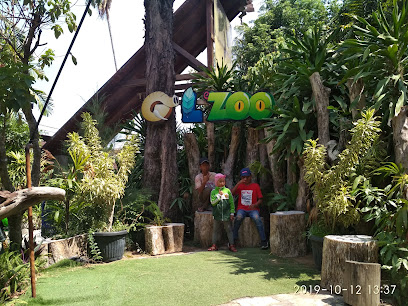
Omah UGM Kotagede Yogyakarta
Discover the cultural richness of Yogyakarta at Omah UGM, a unique museum showcasing the heritage and history of this enchanting city.
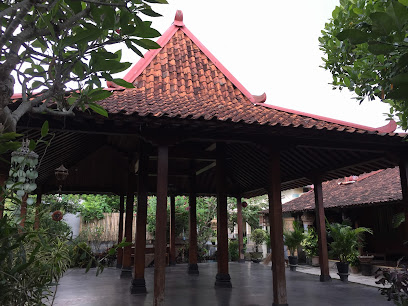
Sendang Seliran
Explore the serene beauty and cultural heritage of Sendang Seliran in Yogyakarta, a tranquil escape surrounded by nature.
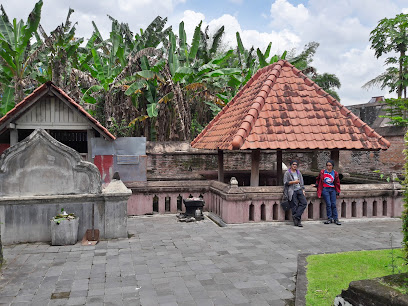
Situs Benteng Cepuri
Explore the historic beauty of Situs Benteng Cepuri, a captivating landmark in Yogyakarta that showcases Indonesia's rich cultural heritage.
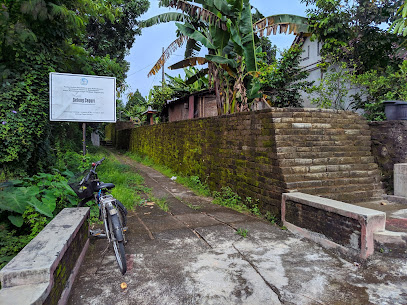
Lawang Pethuk Kotagede
Lawang Pethuk Kotagede: A cultural treasure in Yogyakarta, where heritage meets artistry in exquisite silver craftsmanship.
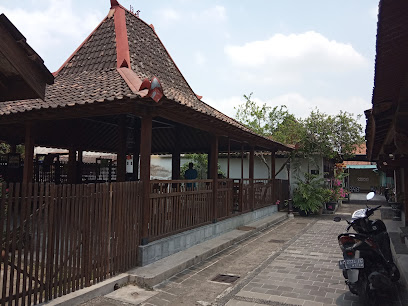
Gang soka Kotagede
Explore the historic charm of Gang Soka Kotagede, a hidden gem in Yogyakarta filled with culture, art, and traditional Javanese architecture.
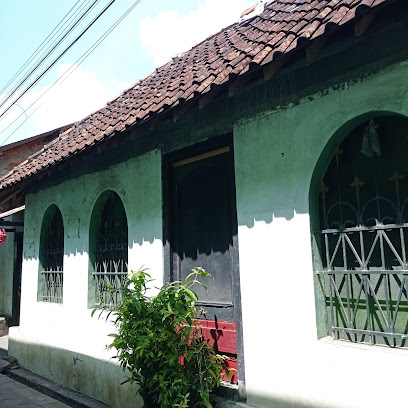
KEBON BINATANG
Explore Kebon Binatang, Yogyakarta's Gembira Loka Zoo, a captivating destination filled with diverse wildlife and stunning gardens for the whole family.
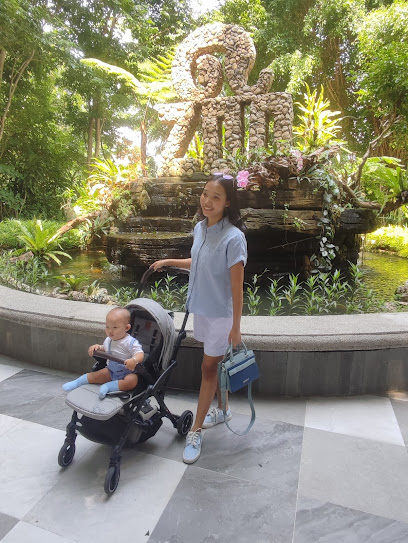
Essential places to dine
Sekar Kedhaton Restaurant
Discover authentic Javanese cuisine at Sekar Kedhaton Restaurant in Yogyakarta - a culinary gem reflecting rich cultural heritage.
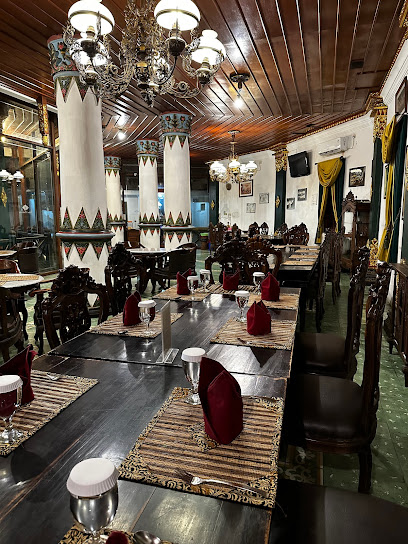
Kedai Den Wir
Discover authentic Indonesian flavors at Kedai Den Wir in Yogyakarta - where every dish tells a story.
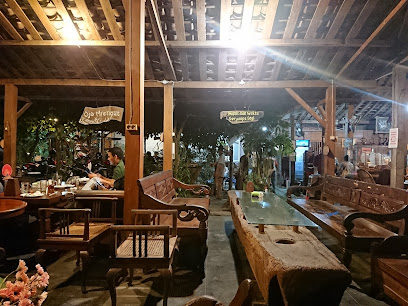
Omah Dhuwur Coffee & Dining
Discover the flavors of Indonesia at Omah Dhuwur Coffee & Dining - where tradition meets modern dining in Yogyakarta.
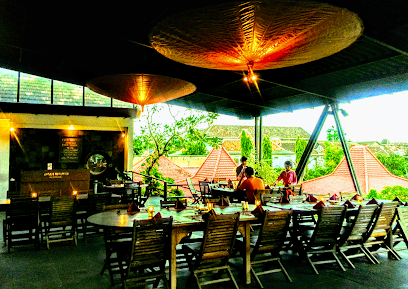
Warung Jawi
Experience authentic Javanese cuisine at Warung Jawi in Yogyakarta - where tradition meets taste in a cozy atmosphere.
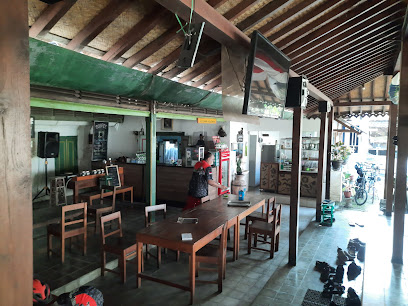
Sate Sapi Pak Cipto Khas Kota Gede꧋ꦱꦠꦺꦱꦥꦶꦥꦏ꧀ꦕꦶꦥ꧀ꦠꦺꦴ
Discover the exquisite flavors of Indonesia at Sate Sapi Pak Cipto Khas Kota Gede, renowned for its sweet and creamy beef satay.
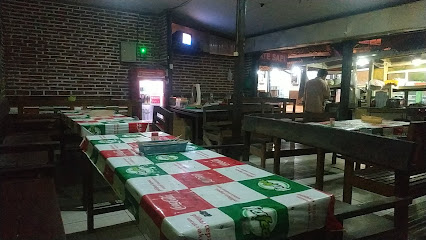
Taman Langit Resto
Discover the authentic flavors of Indonesia at Taman Langit Resto in Yogyakarta – where culinary excellence meets natural beauty.
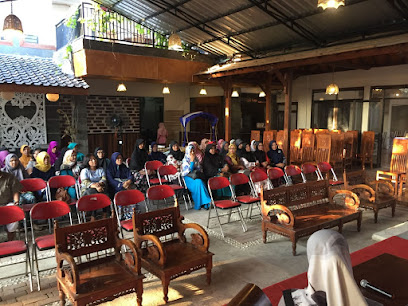
Ijam ais kotagede ꦆꦗꦩ꧀ꦍꦱ꧀ꦏꦺꦴꦠꦒꦺꦣꦺ
Experience authentic Indonesian flavors at Ijam ais kotagede in Yogyakarta's historic Kotagede district.
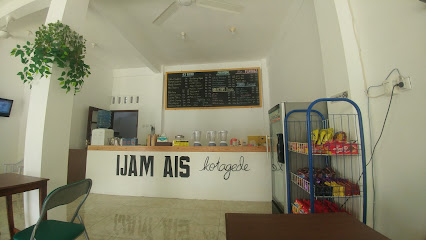
Kopi Kanjeng Putri
Discover authentic Indonesian flavors at Kopi Kanjeng Putri in Yogyakarta—where every sip and bite tells a story.
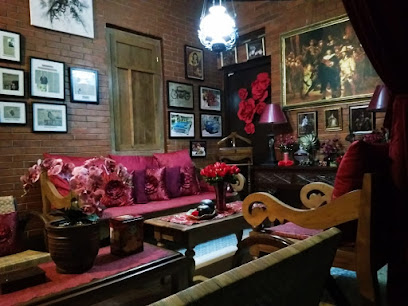
Resto Sekar Wangi
Experience the essence of Indonesian cuisine at Resto Sekar Wangi in Yogyakarta—where tradition meets flavor.

Salsha Resto
Experience authentic Indonesian flavors at Salsha Resto, a cozy diner in Yogyakarta offering delicious traditional dishes and warm hospitality.
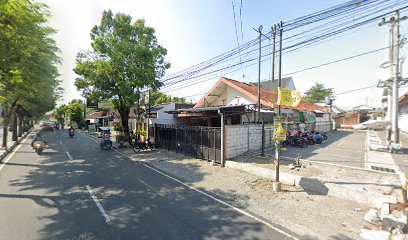
Markets, malls and hidden boutiques
Kotagede Silver
Explore the exquisite craftsmanship of Kotagede Silver, where local artistry meets tradition in Yogyakarta's charming gift shop.
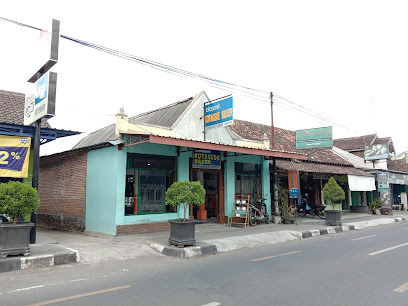
Sederek Store kotagede
Experience the vibrant culture and shopping delights at Sederek Store Kotagede, Yogyakarta's unique shopping destination.
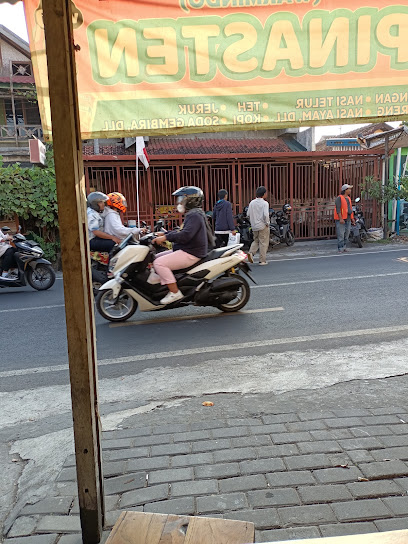
Wijaya Gift Center(ꦮꦶꦗꦪꦒꦶꦥ꦳꧀ꦠ꧀ꦕꦼꦤ꧀ꦠꦼꦂ)
Explore the charm of Yogyakarta at Wijaya Gift Center, where unique souvenirs and local handicrafts await every traveler.
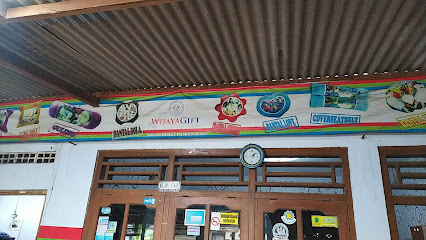
Toko An Ni'mah꧋ꦠꦺꦴꦏꦺꦴꦄꦤ꧀ꦤꦶꦩꦃ
Discover the colorful shops and delicious cuisine at Toko An Ni'mah, Yogyakarta's premier shopping mall for unique finds and local flavors.
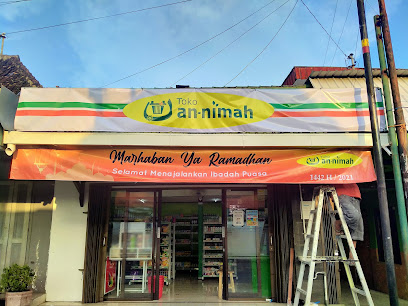
Pramint Collection
Experience Yogyakarta's rich culture through unique handcrafted gifts and local artistry at Pramint Collection.
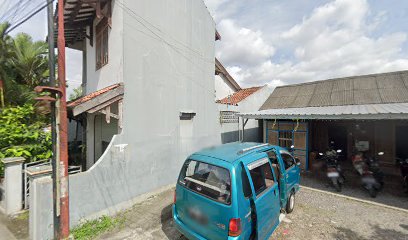
Toko Astuti
Discover the charm of Yogyakarta at Toko Astuti, your go-to gift shop for unique souvenirs and local handicrafts that celebrate Indonesian culture.
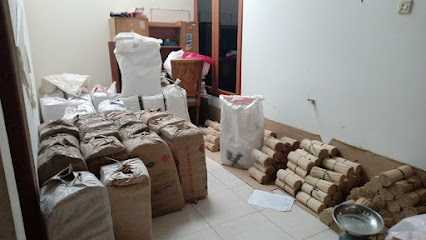
Belanjaku Store
Discover Yogyakarta's vibrant culture at Belanjaku Store, a shopping paradise filled with local crafts, textiles, and delicious treats.
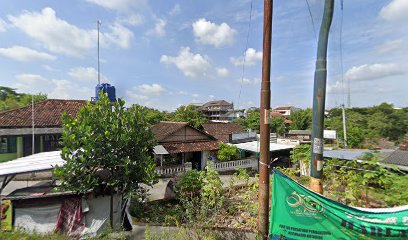
Jogjakarta-Art
Explore unique handcrafted gifts and souvenirs at Jogjakarta-Art, a vibrant shop capturing the essence of Yogyakarta's rich cultural heritage.
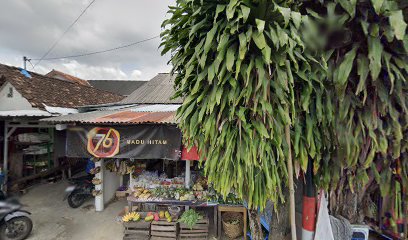
Shiddiq Olshop Jogja
Discover Shiddiq Olshop Jogja, your go-to department store for unique local crafts and everyday essentials in Yogyakarta's historic Kotagede district.

Ayana Center
Explore Ayana Center in Yogyakarta for a mesmerizing selection of perfumes, capturing the essence of Indonesia's rich fragrant heritage.

Essential bars & hidden hideouts
Sakapatat Brew House & Resto
Savor the flavors of Yogyakarta at Sakapatat Brew House & Resto, where grilled perfection meets an extensive beer selection in a lively atmosphere.
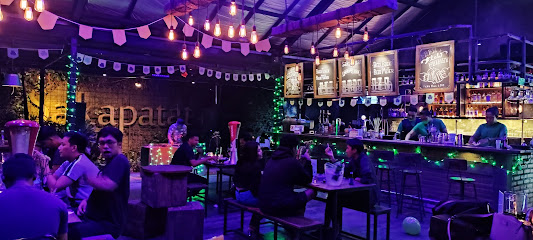
TapHouse Beer Garden
Experience the best of Yogyakarta's nightlife at TapHouse Beer Garden, a lively bar with an extensive craft beer selection and vibrant atmosphere.
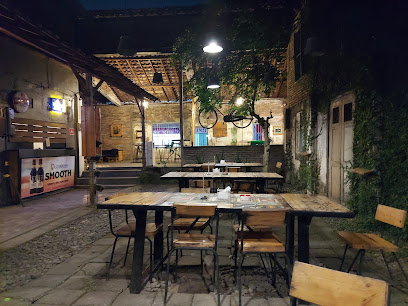
Play Executive
Experience the Joy of Singing at Play Executive Karaoke Bar, Yogyakarta's Premier Entertainment Destination.
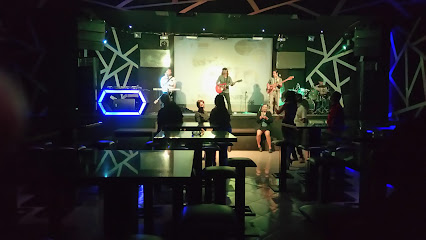
The Infinity Sky Bar
Experience breathtaking city views and exquisite cocktails at The Infinity Sky Bar, the quintessential rooftop escape in Yogyakarta.
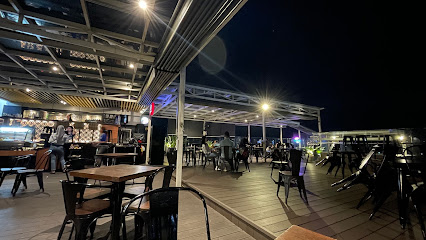
TILL DROP BAR & RESTO-PRAWIROTAMANOS
Discover the vibrant nightlife of Yogyakarta at Till Drop Bar & Resto, where delicious food and cocktails create unforgettable moments.
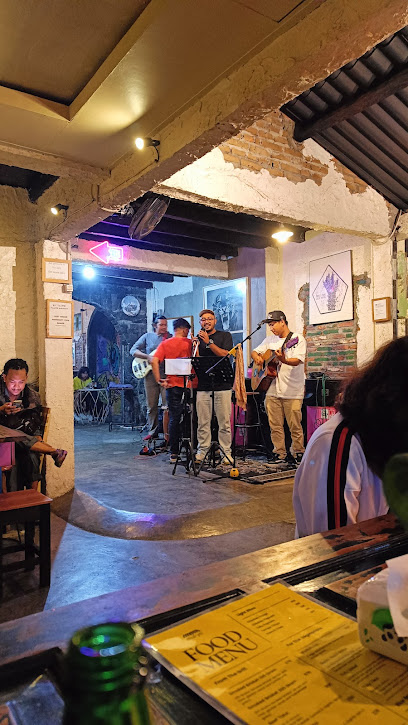
Arcadaz Lounge and Bar
Experience the vibrant nightlife at Arcadaz Lounge and Bar in Yogyakarta, where stylish ambiance meets delightful drinks and friendly service.
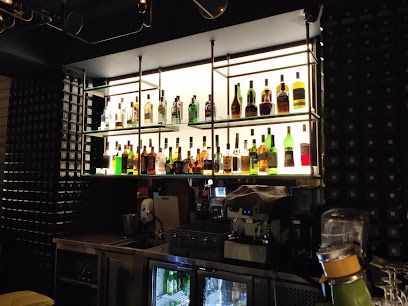
Ijam ais kotagede ꦆꦗꦩ꧀ꦍꦱ꧀ꦏꦺꦴꦠꦒꦺꦣꦺ
Explore a delightful culinary haven at Ijam ais kotagede in Yogyakarta, where traditional flavors meet a cozy café atmosphere.
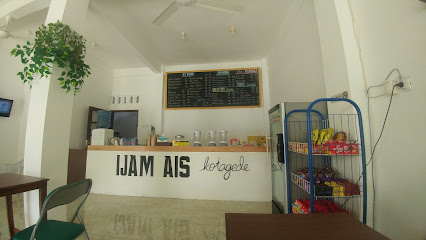
Lurlurmotorcoffee
Discover the vibrant flavors of Yogyakarta at Lurlurmotorcoffee, a bar that blends artisanal coffee with local culture.
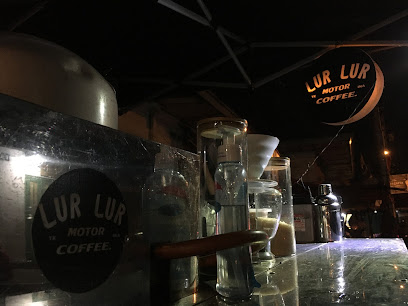
Clueless Boba
Experience the best boba tea in Yogyakarta at Clueless Boba, where unique flavors and a cozy atmosphere await.
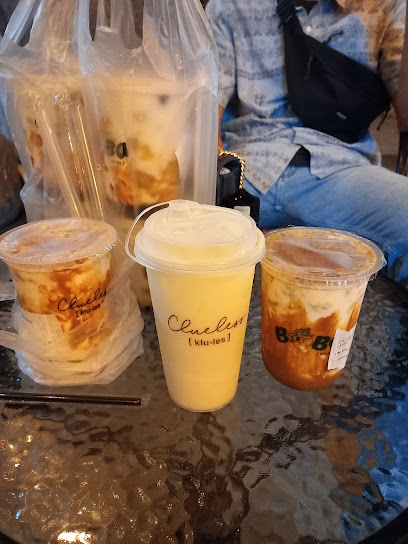
RND FLAIR & BAR SHOP
Experience the vibrant atmosphere and refreshing drinks at RND Flair & Bar Shop, a perfect retreat in Yogyakarta for socializing and relaxation.
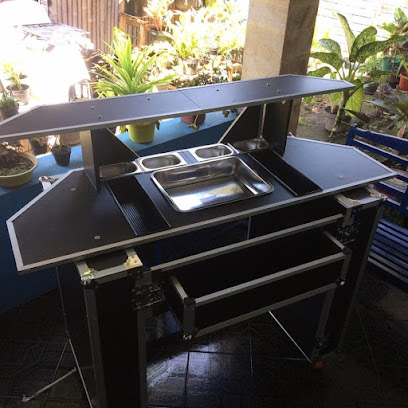
Local Phrases
-
- HelloHalo
[ha-lo] - GoodbyeSelamat tinggal
[se-la-mat ting-gal] - YesYa
[ya] - NoTidak
[ti-dak] - Please/You're welcomeSilakan
[si-la-kan] - Thank youTerima kasih
[te-ri-ma ka-sih] - Excuse me/SorryMaaf
[ma-af] - How are you?Apa kabar?
[a-pa ka-bar] - Fine. And you?Baik. Bagaimana dengan Anda?
[ba-ik. ba-gai-ma-na den-gan an-da] - Do you speak English?Apakah Anda bisa berbahasa Inggris?
[a-pa-kah an-da bi-sa ber-ba-ha-sa ing-gris] - I don't understandSaya tidak mengerti
[sa-ya ti-dak men-ger-ti]
- HelloHalo
-
- I'd like to see the menu, pleaseSaya ingin melihat menu, tolong
[sa-ya in-gin me-li-hat me-nu, to-long] - I don't eat meatSaya tidak makan daging
[sa-ya ti-dak ma-kan da-ging] - Cheers!Selamat minum!
[se-la-mat mi-num] - I would like to pay, pleaseSaya ingin membayar, tolong
[sa-ya in-gin mem-ba-yar, to-long]
- I'd like to see the menu, pleaseSaya ingin melihat menu, tolong
-
- Help!Tolong!
[to-long] - Go away!Pergi!
[per-gi] - Call the Police!Panggil polisi!
[pang-gil po-li-si] - Call a doctor!Panggil dokter!
[pang-gil dok-ter] - I'm lostSaya tersesat
[sa-ya ter-se-sat] - I'm illSaya sakit
[sa-ya sa-kit]
- Help!Tolong!
-
- I'd like to buy...Saya ingin membeli...
[sa-ya in-gin mem-be-li] - I'm just lookingSaya hanya melihat-lihat
[sa-ya han-ya me-li-hat-li-hat] - How much is it?Berapa harganya?
[ber-a-pa har-gan-ya] - That's too expensiveItu terlalu mahal
[i-tu ter-la-lu ma-hal] - Can you lower the price?Bisa diturunkan harganya?
[bi-sa di-tu-run-kan har-gan-ya]
- I'd like to buy...Saya ingin membeli...
-
- What time is it?Pukul berapa sekarang?
[pu-kul ber-a-pa se-ka-rang] - It's one o'clockPukul satu
[pu-kul sa-tu] - Half past (10)Setengah (sepuluh)
[se-ten-gah (se-pu-luh)] - MorningPagi
[pa-gi] - AfternoonSore
[so-re] - EveningMalam
[ma-lam] - YesterdayKemarin
[ke-ma-rin] - TodayHari ini
[ha-ri i-ni] - TomorrowBesok
[be-sok] - 1Satu
[sa-tu] - 2Dua
[du-a] - 3Tiga
[ti-ga] - 4Empat
[em-pat] - 5Lima
[li-ma] - 6Enam
[e-nam] - 7Tujuh
[tu-juh] - 8Delapan
[de-la-pan] - 9Sembilan
[sem-bi-lan] - 10Sepuluh
[se-pu-luh]
- What time is it?Pukul berapa sekarang?
-
- Where's a/the...?Dimana ada/ada...?
[di-ma-na a-da/a-da] - What's the address?Apa alamatnya?
[a-pa a-la-mat-nya] - Can you show me (on the map)?Bisa tunjukkan saya (di peta)?
[bi-sa tun-juk-kan sa-ya (di pe-ta)] - When's the next (bus)?Kapan yang berikutnya (bus)?
[ka-pan yang be-ru-tu-nya (bus)] - A ticket (to ....)Tiket (ke ....)
[ti-ket (ke)]
- Where's a/the...?Dimana ada/ada...?
History of Kotagede
-
Kotagede, established in the late 16th century, served as the first capital of the Mataram Kingdom. This kingdom played a pivotal role in shaping Javanese culture and politics. The area became a center for trade and diplomacy, bustling with merchants and scholars, and laid the foundation for the rich cultural tapestry of Yogyakarta.
-
Kotagede is renowned for its traditional Javanese architecture and intricate silver craftsmanship. The neighborhood's distinctive mosques and royal tombs, built during the Mataram period, showcase a blend of Islamic and Javanese architectural elements. The silver industry flourished here, with local artisans creating exquisite pieces that continue to attract visitors and collectors.
-
During the Dutch colonial period, Kotagede faced significant changes. The Dutch sought to exert control over the region, which led to the decline of the Mataram Kingdom's influence. Nevertheless, the cultural practices and traditions established during this time persisted, contributing to the rich heritage that is evident in the neighborhood today.
-
In the early 20th century, Kotagede became an important site for the Indonesian National Movement. Local intellectuals and activists gathered to discuss ideas of independence and nationalism. This period saw the emergence of a sense of identity among the Javanese people, contributing to the broader struggle for independence from colonial rule.
-
Today, Kotagede is recognized for its efforts in preserving its cultural heritage. The local government and communities actively promote traditional crafts, architecture, and cultural festivals, making it a vibrant neighborhood that reflects the historical and cultural legacy of Yogyakarta. It has become a focal point for cultural tourism, attracting visitors interested in the rich history of the area.
Kotagede Essentials
-
Kotagede is easily accessible from other neighborhoods in Yogyakarta. From the city center, you can take a taxi or an online ride-hailing service, which takes about 20 minutes depending on traffic. Alternatively, public buses (Trans Jogja) offer a more economical option, with routes connecting to Kotagede. Look for route 1A or 1B, which stops near the main attractions in Kotagede.
-
Kotagede is best explored on foot, as many of its historical sites and attractions are within walking distance. For longer distances, you can rent a bicycle from local shops or use a local ojek (motorcycle taxi) for a quicker option. Be aware that public transportation options like buses may be limited within the neighborhood.
-
Kotagede is generally safe for tourists; however, it is advisable to remain vigilant, especially in crowded areas. Petty crimes such as pickpocketing can occur, particularly near busy markets like Pasar Kotagede. Avoid walking alone at night in less populated areas, and keep your belongings secure at all times.
-
In case of an emergency, dial 112 for police assistance or 118 for ambulance services. Local hospitals, such as RSUD Kota Yogyakarta, are equipped to handle medical emergencies. It is recommended to carry travel insurance that covers health emergencies. For minor health issues, pharmacies are available throughout Kotagede.
-
Fashion: Do dress modestly, especially when visiting mosques or local homes. Avoid wearing revealing clothing. Religion: Do respect local customs and traditions; remove your shoes before entering homes or places of worship. Public Transport: Do be courteous and offer your seat to the elderly. Don't eat or drink on public transport. Greetings: Do greet locals with a polite 'Selamat Pagi' (Good Morning). Don't initiate physical contact unless you are familiar with the person. Eating & Drinking: Do try local specialties like bakmi Jawa and soto. Don’t refuse food or drink offered to you, as it can be seen as impolite.
-
To experience Kotagede like a local, visit the traditional markets early in the morning for fresh produce and local snacks. Engage with local artisans and learn about the silver crafting that Kotagede is famous for. Attend a Javanese gamelan performance if possible, and explore the quiet streets to discover hidden historical sites that are often overlooked by tourists.
Nearby Cities to Kotagede
-
Things To Do in Semarang
-
Things To Do in Surabaya
-
Things To Do in Bandung
-
Things To Do in Jakarta
-
Things To Do in Bali
-
Things To Do in Poon Saan
-
Things To Do in Settlement
-
Things To Do in Flying Fish Cove
-
Things To Do in Drumsite
-
Things To Do in Greta Beach
-
Things To Do in Balikpapan
-
Things To Do in Makassar
-
Things To Do in Kuching
-
Things To Do in East Coast Park
-
Things To Do in Sentosa







